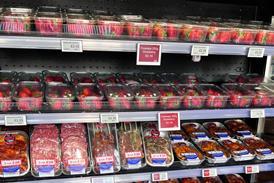After months of negotiation to resolve the Eurozone crisis, a solution appears to have been reached. But it begs the question: how long will it hold together given the fundamental problems that some members face? Perhaps they might be better off biting the bullet and setting themselves free to manage their own currencies and exchange rates? The UK is more than an interested bystander in this as our trade with the EU is important and instability is bad for already fragile business and consumer confidence.
Meanwhile, amid all the hand-wringing from parts of the coalition government about repatriating powers from the EU, UKPIA members are struggling to work out exactly how to comply with two EU Directives the Renewable Energy Directive (RED) and the Fuels Quality Directive currently being transposed into UK law. The RED poses an immediate problem. From December 15 obligated fuel suppliers have to ensure that the biofuel content in road fuels meets carbon and sustainability criteria, otherwise they face the risk of the bio content being non-compliant and thus not counting towards their obligation. Failure to meet the biofuel obligation incurs a financial penalty. The trouble is, despite a promised consultation on the guidelines, nothing has yet emerged from government, which leaves precious time for even a consultation before the regulations are adopted by Parliament if the start date is to be met. On a practical level, refiners and suppliers will be planning now for meeting December fuel requirements, which is usually a busy time, without a clear idea of what they have to comply with.
In recent weeks, we have also responded to the Treasury on the pilot scheme for a rural fuel duty rebate of 5ppl, based on either a distributor-based scheme or retailer purchase scheme. The intentions are commendable but administratively complex. The distributor scheme is less complex but might end up having little impact down the supply chain once it reaches the forecourt level. The retailer scheme seems to have a range of challenges not least delay in the retailer receiving an HMRC refund as well as the complexity of checking the basis of individual site costs and profit. Maybe a fixed ’motoring allowance’ for registered households/vehicles might be a simpler solution.
























No comments yet